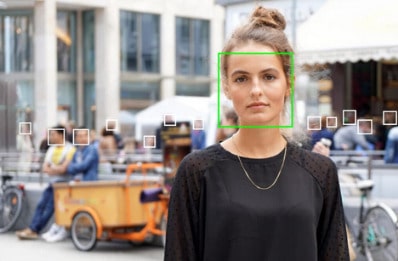A divided commonwealth commission in Massachusetts has recommended that law enforcement agencies confine the use of facial recognition systems to “limited, tightly regulated circumstances to advance legitimate criminal investigations.”
Limited might be a matter of opinion.
Commissioners recommended that no use of emotional recognition, tracking or surveillance be permitted because these fields have “low reliability.” But the Massachusetts State Police would still get more latitude than some privacy advocates would prefer.
At the same time, the special commission’s report, sent to the legislature, “expressed marked concern” about facial recognition’s use by other government functions such as education and airport security.
While the special commission was charged with evaluating the use of facial recognition by commonwealth government in general, members wrote that they felt that law enforcement use is a “threshold matter” requiring their full focus. They strongly recommended more investigation into deployment elsewhere in government.
Just this month, authors of a civil liberties report alleged police use of facial recognition in the commonwealth over the last two years saw too little government oversight and too much industry influence. It is unclear to what extent, if any, the new recommendations would address those concerns.
The report makes 13 recommendations to legislators. Under the recommendations, the Massachusetts State Police would have the freest rein. Only that agency would be able to search face biometrics databases. They also would be able to ask the Federal Bureau of Investigations.
Even then, the panel recommended that any use of facial recognition systems involve only an unidentified person, captured in a still or video image, who is suspected of being involved in a felony as set out in a judge’s warrant.
Officers facing situations that involve immediate danger of death or serious injury could skip the warrant, but they would have to follow up with a report on why the exception was made.
The staties, as many in the commonwealth call troopers, would be restricted to using existing applications or new software approved by the Technology Services and Security office, and then only after a public hearing about the proposed deployment.
A state patrol office for facial recognition operations should be created to standardize policies and procedures, hopefully making use of the technology more transparent and trustworthy for citizens.
The commission advised lawmakers to also require that police tell someone after they have been charged with a crime that face biometrics were used in the investigation that led to charges against them. Suspects would have the right to challenge the identification and, possibly, to have that identification kept out of court records.
Panelists recommended that each use of the technology be collected in a quarterly report and submitted to the commonwealth’s Executive Office of Public Safety and Security. That office would have to publish an annual accounting of the data.
They also suggest an update to Massachusetts’s Police Reform Law, which set out standards and regulations for functions including face biometrics use.
Police departments (other than state troopers) and individual officers should be prohibited from “acquiring, possessing, accessing, using, assisting with the of systems.”
Nor should anyone be allowed to develop or aid in developing a system, according to the commissioners. They should not be allowed to ask a third-party — not even the federal government — to get, access or use facial recognition without express statutory approval.
Officials should not use data captured by face biometrics systems even if it was found as part of legislative, court and administrative proceeding.
A number of U.S. States have taken action to regulate facial recognition in the absence of long-awaited federal regulation.
Article: Massachusetts panel says use of facial recognition should be restricted to state police
